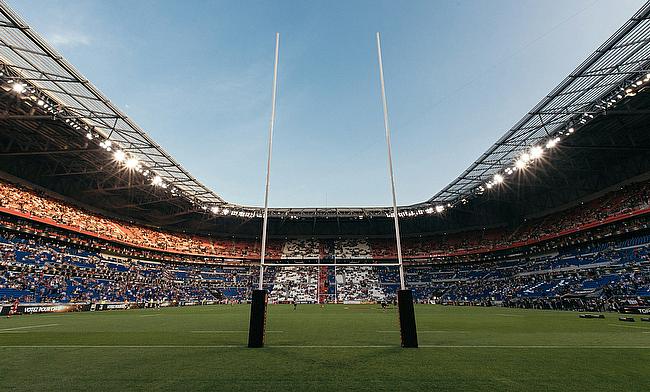Trends and Insights: 4 Ways in Which Blockchain is Transforming Rugby
In recent years, blockchain technology has been making waves across the sports industry, touching many fields, including rugby.
From enhancing transparency to revolutionizing payment systems, blockchain is reshaping the way we perceive and engage with the sport. In this blog, delve into the four key ways in which blockchain is transforming rugby, shedding light on its impact on player contracts, fan engagement, and more. As you explore these trends and insights, also consider the implications for platforms like cryptocasinos.com, highlighting the potential crossover between blockchain innovation and the sports entertainment sector.
Evolution of Rugby and Technology
Rugby, rooted in 19th-century England, has undergone significant evolution alongside technological advancements. Originally an amateur sport, professionalization, and globalization have propelled rugby into the modern era. Technology has played a pivotal role, in shaping training methods, equipment design, and match analysis. From basic video analysis to sophisticated GPS tracking systems, teams utilize technology to enhance performance and minimize injury risks.
Moreover, the integration of blockchain technology marks a new chapter in rugby's evolution. With its decentralized and immutable ledger, blockchain ensures transparency and trust in various aspects of the sport. Whether it's managing ticket sales, verifying player contracts, or safeguarding the integrity of match data, blockchain offers innovative solutions to longstanding challenges in sports governance.
As rugby continues to embrace technological innovations, blockchain stands out as a transformative force, promising to revolutionize how the sport is managed, experienced, and governed.
Ways Blockchain is Transforming Rugby
Blockchain technology is reshaping the landscape of rugby, offering innovative solutions to enhance various aspects of the sport. Firstly, blockchain-based platforms are revolutionizing fan engagement, providing decentralized networks where supporters can interact, access exclusive content, and even participate in ownership schemes of their favorite teams. This fosters a deeper connection between fans and clubs, driving loyalty and revenue streams.
Furthermore, blockchain facilitates improved player performance tracking and data analytics. By securely recording player statistics, fitness metrics, and injury history on a tamper-proof ledger, teams can make informed decisions regarding training regimes and game strategies. This leads to optimized player performance and reduced injury risks.
Moreover, blockchain ensures secure and transparent ticketing and merchandise sales. Smart contracts enable automated ticketing processes, eliminating fraudulent activities and ensuring fair distribution. Additionally, blockchain-based marketplaces authenticate the authenticity of rugby merchandise, protecting fans from counterfeit products.
Lastly, blockchain enhances sports governance and integrity by providing immutable records of match results, player contracts, and financial transactions. This fosters transparency and trust among stakeholders, safeguarding the integrity of the sport. Overall, blockchain technology is catalyzing positive change within the rugby industry, empowering fans, optimizing player performance, and ensuring the integrity of the game.
Case Studies and Examples
Several rugby teams and organizations have embraced blockchain technology, demonstrating its transformative potential within the sport. For instance, the National Rugby League (NRL) in Australia partnered with a blockchain-based ticketing platform to streamline ticket sales and prevent scalping. By implementing blockchain, the NRL ensures secure and transparent ticket transactions, enhancing the fan experience.
Additionally, Premiership Rugby, the top-tier rugby union competition in England, has explored blockchain solutions for player welfare and injury management. By securely storing player health data on a decentralized ledger, Premiership Rugby aims to optimize player recovery and minimize injury risks, ultimately improving player performance on the field.
Moreover, some rugby clubs have ventured into blockchain-based fan engagement initiatives. FC Barcelona, although primarily a football club, has utilized blockchain technology to enhance fan interaction through digital collectibles and voting platforms. This demonstrates the versatility of blockchain in fostering deeper connections between sports organizations and their fanbases.
These case studies exemplify how blockchain is being leveraged across different facets of rugby, from ticketing and player welfare to fan engagement, paving the way for a more transparent, efficient, and engaging sport.
Future Trends and Potential Challenges
Looking ahead, the future of blockchain in rugby holds promising trends and potential challenges. One prominent trend is the continued integration of blockchain into various aspects of the sport, including fan engagement, player performance tracking, and sports governance. As blockchain technology matures and becomes more widely adopted, we can expect to see innovative applications emerge, further enhancing the rugby experience for fans, players, and administrators alike.
However, alongside these opportunities come potential challenges. Regulatory considerations, such as data privacy laws and intellectual property rights, may pose obstacles to the widespread adoption of blockchain in rugby. Moreover, ensuring interoperability between different blockchain platforms and existing systems within the rugby industry could require concerted efforts and collaboration among stakeholders.
Despite these challenges, the potential benefits of blockchain in rugby are significant. By addressing regulatory concerns, fostering collaboration, and staying abreast of technological advancements, the rugby industry can harness the full potential of blockchain to drive innovation, transparency, and efficiency in the sport.
To sum up, blockchain technology is revolutionizing rugby, offering unprecedented transparency, efficiency, and fan engagement. As we look to the future, continued integration of blockchain promises further enhancements in player performance tracking, governance, and fan experiences. Despite potential regulatory hurdles, the transformative potential of blockchain in rugby remains undeniable, paving the way for a more connected and efficient sport.


